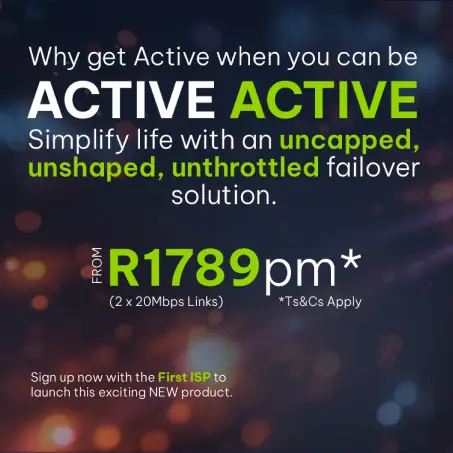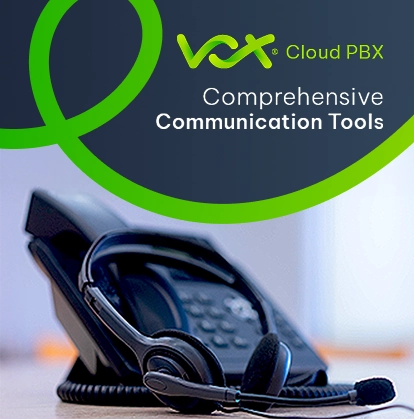Just when it seemed like we were making genuine progress when it came to clarifying all things Cloud related, 2022 rolled around and made us go full circle.
We’ve written enough around the topic to (hopefully) feel confident that we were in the process of debunking the many misconceptions around the term (which our team of experts could quickly clear up), and were rapidly reaching the stage where everyone, everywhere could appreciate its merits. One (admittedly horrible) rainy season later, however, and we feel like we’re back in the days where mere mention of the word Cloud means one of three things to us South Africans:
- Eskom ruining everyone’s mood after complaining about wet coals (seriously, invest in an awning)
- Annette Botha prepping the nation to pack a raincoat.
- KZN getting ready to do their best Atlantis impression.
Like electricity, service delivery, and the word “shame”, the Cloud has a different meaning once you enter our unique and wonderful country. Luckily, we’re here to put together your handy survival guide for clearing up those doubts and successfully navigating your transition into the big world of the unseen storage.
- Myth One: The Cloud is tangible, and the sky is falling:
Much like we’ve given all power outages the unified blanket term of Eskom, the word Cloud doesn’t refer to a real-life floating item where your important Data (and files you don’t want your girlfriend to see) are stored. Rather, it’s simply a remote accessing computing solution which allows for information and data to be safely stored on an Internet based or online server. Unlike your older brother’s hard-drive with the password 1234, it’s not accessible to overly eager younger siblings eager to catch a glimpse of the promised land, but rather a highly encrypted, secure, and difficult-to-breach network which utilises software over hardware.
- Myth Two: The Cloud is as secure as Paris Hiltons… home videos
On the contrary, Cloud based security is likely tighter than a Gupta’s tax returns. Unlike the Parliament buildings in Cape Town (too soon?) Cloud Security is on a mission to improve all the time. In most cases, vendors will have high levels of encryption, security and functionality which are more advanced than those of the clients they serve (really not an achievement when it comes to local municipalities, but for everyone else that’s pretty impressive).
Any vendor worth their salt should employ a team of security experts to protect the information of their clients. Not only does their professional reputation depend on it, but the new PoPIA Act threatens severe punishments to organisations deemed irresponsible during a Data breach. So, as good as your in-house IT guy is at discovering what you’re really searching on Google during company time, chances are he’s not a Cyber Security expert – meaning leaving things in the hands of professionals might be your safest bet.
- Myth Three: The transition takes longer to process than UIF.
Thankfully, this change is closer to a few days than a few years – meaning the only reason your business needs to stall is a family meeting with another nonsensical curfew. A good Cloud provider (which we like to think we are) should handle all aspects of migration to ensure a seamless, easy transition (while answering the hundred questions from Jay in accounting) as well as equip your staff with the relevant info or tools to simplify life. Usually, this takes a few days, meaning you’re back in the game before you can say “Cloud”.
- Myth Four: It’s as reliable as the Proteas in a major tournament.
Actually, it’s your current system that’s the problem (which is the business equivalent of saying, “it’s not us, it’s you). Contrary to the article your friend that emigrated to New Zealand shared on Facebook, or your uncle posted in the family WhatsApp chat, Cloud Computing does backup better than its predecessors. You see, unlike the Star Wars universe, in the world of Cloud “newer” often means “better” (as opposed to a rehash of outdated plotlines). With the right provider and the right plan, you can wave goodbye to manual backups and the ever-looming threat of an office fire destroying your Database (if such a threat exists, that is). Should a disaster, such as looting or Putin going trigger happy, ever occur, you can at the very least know that your info is recoverable.
- Myth Five: It’s more complicated than the Zondo Commission – I don’t have time for this.
Most change faces resistance – just ask Galileo.
Fact is, most software is designed to simplify rather than complicate life. Unlike your remote HR software which never lets you fill in your leave correctly, your Cloud provider should equip you with a range of user friendly, easy to engage with features that are easy to operate. Cloud = new, but does NOT = more complicated. Typical systems offer dashboards, reporting and accessing capabilities which even the office Karen can figure out relatively easily – allowing you to simplify your Data, information, and processes as you see fit.
So, there you have it. In the words of Ross Gellar, it’s not that big a deal and it really is quite common (hey, we’re still talking Cloud here – stay with us). The only question you need to ask yourself is what you’re waiting for. Get in touch with our team at Nymbis and let us clear up those Clouds – we can promise it’s better than Rain (see what we did there? 😉).














